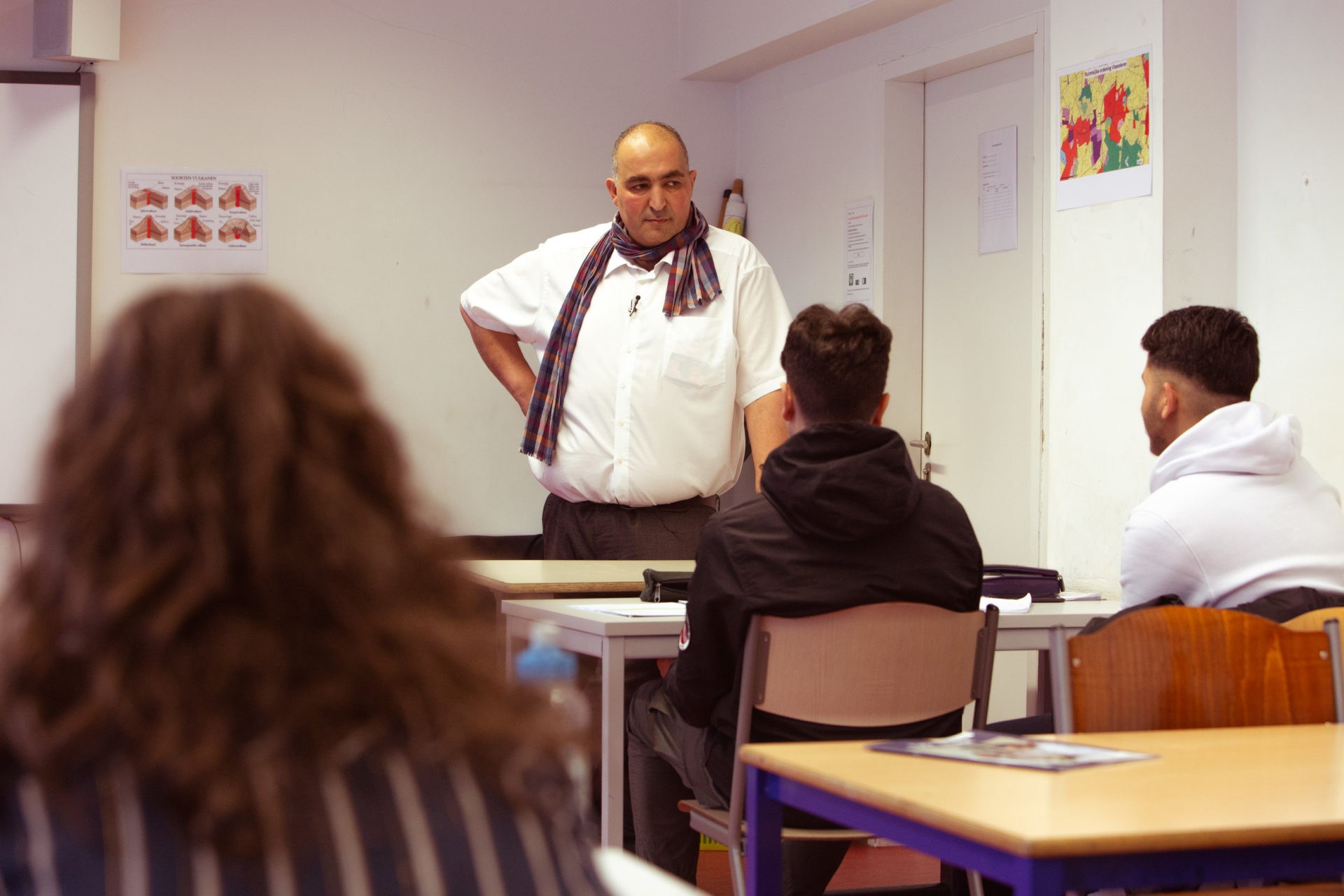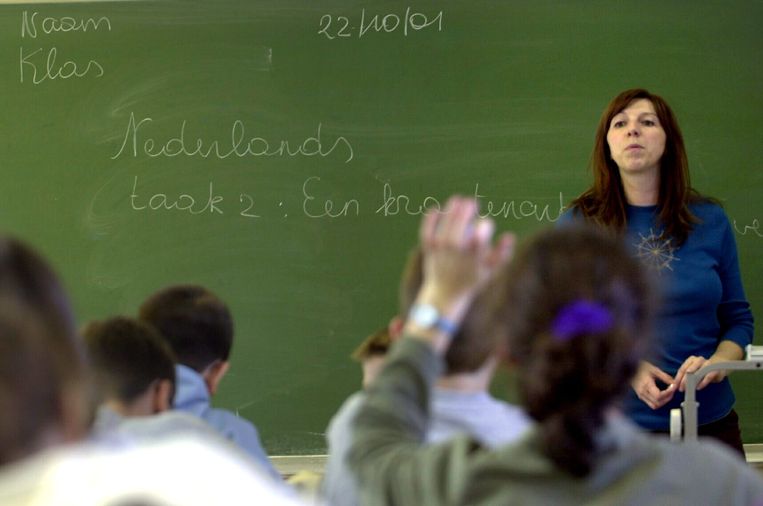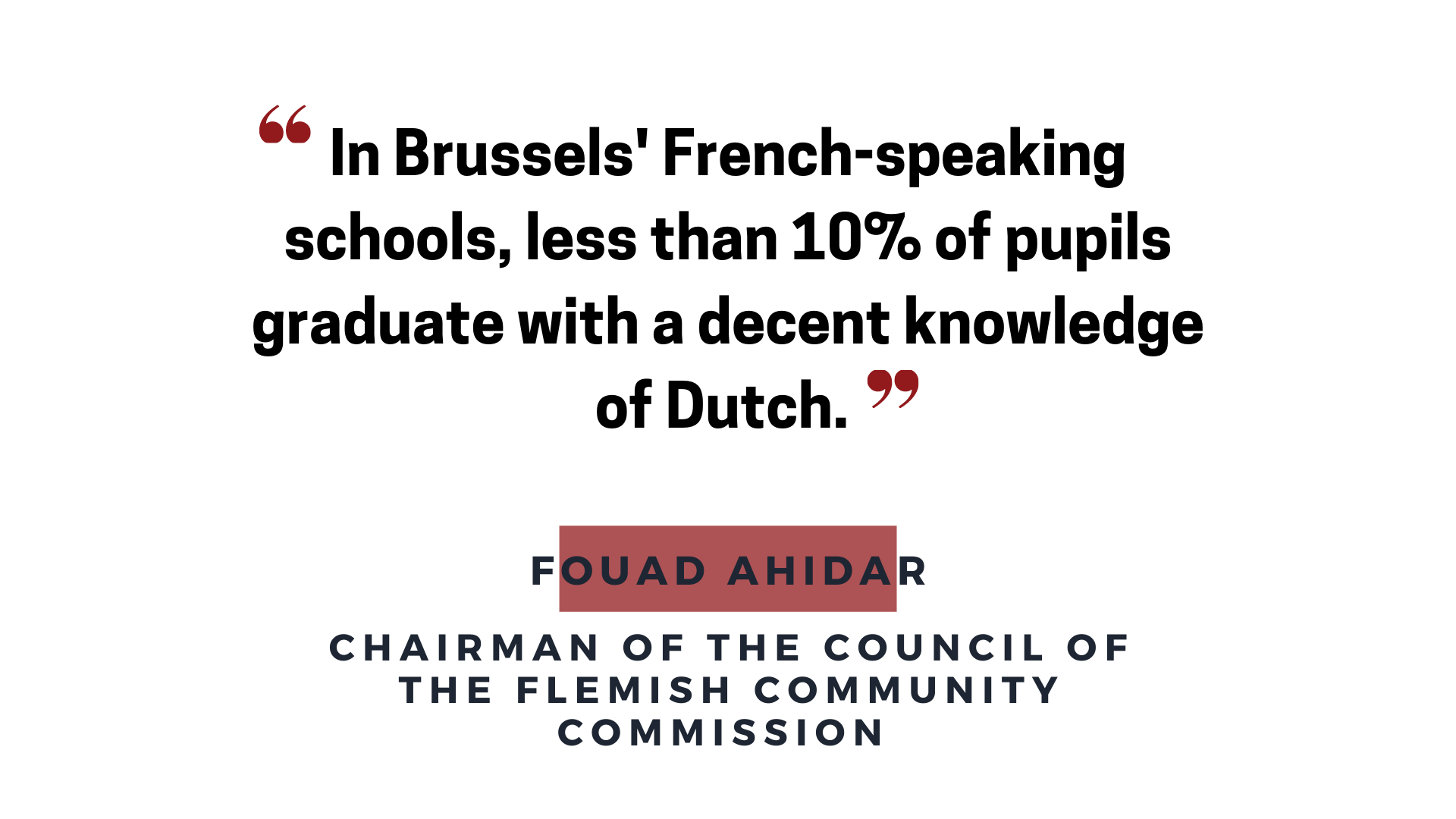Both the Flemish and French-speaking education systems give pupils the opportunity to learn Dutch, French, and English from a certain age, and in some cases, taking classes in all three languages is mandatory.
But in Brussels, specifically in French-speaking schools, the level of language education is not where it should be, according to Fouad Ahidar, Chairman of the Council of the Flemish Community Commission and Member of the Brussels Parliament.
“In the French-speaking education system in Brussels, less than 10% of pupils graduate with a decent knowledge of Dutch. We need to make sure all children get the chance to really learn other languages,” Ahidar told The Brussels Times.
When questioned in parliament about the lack of Dutch-speaking civil servants in Brussels' communes, Brussels Minister for Employment and Local Authorities Bernard Clerfayt cited the lack of language skills gained from education as the root of the problem.
“The population in Brussels, in general, is not sufficiently bilingual, but the real problem in the region is the insufficient language skills of pupils leaving secondary school,” he said.
Ahidar pointed out that working towards fully bilingual education in Brussels is one way to reach language goals.
The position of French in Dutch-speaking education and of Dutch in French-speaking education “must move forward, not backward,” which in turn will make the language problem in Brussels “disappear of its own accord in time,” Ahidar added.
This problem is not a surprise to the Francophone community, which has said it's trying to give language education a more important place in the curriculum.
“We are currently finalising a preliminary draft decree authorising double immersion teaching from the first year of secondary education in the French-speaking regions,” Hélène Pans, spokesperson for Caroline Désire, Francophone Minister of Education, told The Brussels Times.
If approved, this measure would also enable more schools to implement linguistic-focused teaching projects (in particular in the City of Brussels) in partnership with both the Dutch- and French-speaking universities in Brussels (ULB and VUB).
As of September 2021, two primary schools in the City of Brussels will offer classes following this system in a bid to strengthen language education in the city's schools.
“Active pedagogy and immersion education allow pupils to be actively involved in their own learning process,” Faouzia Hariche, Brussels alderman for Public Education, explained.
“They are thus continually stimulated and will learn the language at their own pace and in their own way, through listening and through repetitive exercises and multiple language activities.”
English, ‘the language of the future’
Similarly, the level of French spoken by Dutch-speaking pupils is also declining, according to Ahidar, but the chances of these pupils being bilingual remain higher than for those in French-speaking schools.
“French-speaking pupils in Brussels are often only proficient in French, whereas Dutch-speaking people are often bilingual, but more so in Dutch and English, as this language is being promoted both in and outside of schools,” he explained.
Ahidar emphasised that the level of English language education is also insufficient in French-speaking schools, adding that if this remains unfixed, it could pose a threat to children's future.
“We know English is the language of the future, and if our children could speak it as a third language, it would strengthen their position in the labour market here and abroad. If you have a school certificate and you are trilingual, you can go and work in almost any European country,” said Ahidar.

Fouad Ahidar promoting Dutch-language education in Brussels' schools.
Credit: Cabinet Fouad Ahidar
Clerfayt added that in order to further develop the language skills of French-speaking people in Belgium, communities should work together and more hours of both Dutch and English lessons should be organised in Brussels schools.
According to Ahidar, several politicians in the Belgian capital want the status of English in its educations systems to be strengthened, but this “is not easy, because many Flemish politicians argue that the level of Dutch in schools should be ‘up to scratch’ before focusing too much on English.”
This rhetoric was also highlighted by Sven Gatz, Brussels’ minister for Multilingualism, who said there is a great demand among politicians and citizens to give English a central position in the city, but that there's a danger people will only speak their own language and English.
“The Belgian problem here is also that both the French-speaking and the Dutch-speaking want to be respected, and many people say that we should first learn each other's languages before we prioritise English, and that, of course, remains an important debate,” Gatz told The Brussels Times.
Ahidar said that whatever the politics are behind the strengthening of language education in French-speaking schools, the future of children should be at the heart of any improvements.
“We have to make sure that, in the future, our children will be trilingual in Brussels, because that is an opportunity and a real gift that you offer to those young people,” Ahidar said.


